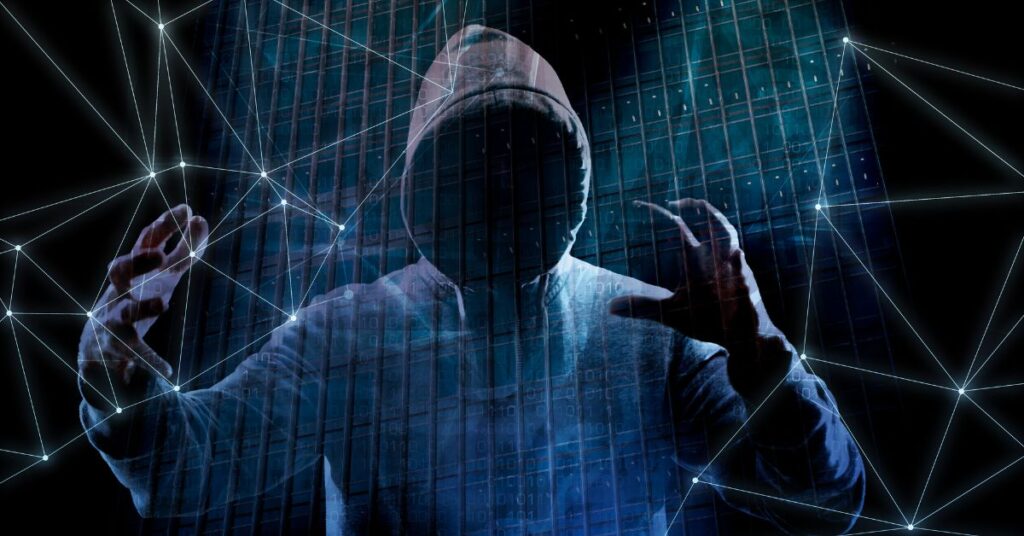How Cybersecurity Threats Can Impact Employee Mental Health

Table of Contents
In our technologically advanced society, cybersecurity threats are as prevalent as ever. The attackers are no longer limited to physical borders. Now, they can assail from any corner of the internet at any moment. Consequently, cyber threats are escalating, and the perpetrators are refining their strategies, focusing on individuals and capitalizing on vulnerabilities with distressing accuracy.
However, the harm orchestrated by these cyber threats extends beyond a company’s financial or operational facets. The ramifications echo deeply, affecting the very core of these entities – the employees who often find themselves at the forefront of this digital combat.
The Escalation of Cyber Threats
Recent data unveils a startling fact: 76% of companies have succumbed to phishing scams in recent years. This isn’t a minor problem that can be neglected. It is a formidable and pervasive issue, besieging enterprises worldwide, irrespective of their stature.
Furthermore, these assaults are increasing and adapting. Cybercriminals persistently refine their approaches, find new vulnerabilities, and invent ingenious ways to circumvent security defenses. Their targets are no longer restricted to computer networks but extend to the individuals maneuvering them.
The Impact Cybersecurity Threats Have On Mental Health
Sadly, the personal toll of these cyber incursions often goes unnoticed. Here’s how cyber threats can profoundly influence the mental health of employees.
Psychological Strain
The mental repercussions of being trapped in a cyber attack are frequently downplayed. Employees embroiled in phishing incidents or inadvertently triggering security infringements may experience guilt, humiliation, and apprehension. This psychological burden can induce a decline in work pleasure and diminished efficiency, potentially cultivating mental disorders such as anxiety and depression.
This scenario underscores the importance of an empathic employee wellness initiative. Incorporating mental health aids stress control techniques and fostering a nurturing atmosphere for those impacted by cyber threats can mitigate this psychological distress, helping employees to feel acknowledged, backed, and prepared to manage cyber threats adeptly.
The Burden of Unwavering Alertness
In the current scenario, constant alertness is demanded from employees. This involves continually scrutinizing for dubious emails, updating passwords frequently, and adhering to other security guidelines. This perpetual state of alert can induce mental fatigue, culminating in burnout, a syndrome marked by unmanaged chronic occupational stress, leading to exhaustion, heightened detachment from work, and diminished job performance.
Disruption of Work-Life Equilibrium
The imperative for ceaseless alertness and the prospect of breaches outside working hours can obscure the distinction between professional and personal lives. Employees might find themselves monitoring work emails at home due to the dread of overlooking threats or being summoned to respond to issues beyond their work hours. This intrusion can adversely affect work-life harmony, escalating stress levels and degrading overall happiness.
The Intimidation Aspect
The fear of becoming the compromised link in the corporate cyber defense network can also profoundly affect employees. This anxiety can foster a stressful atmosphere where employees are terrified of erring. It can inhibit creativity and initiative, vital components for progression and development. In severe circumstances, it can cultivate a culture of fear, eroding employee spirit and job contentment.
Employee Engagement Concerns
The organizational approach towards cybersecurity can have a profound influence on employee engagement. If employees perceive their company as inadequate in shielding them from cyber threats or feel unjustly held accountable for security lapses, it can lead to detachment and skepticism. Conversely, organizations that aggressively address cybersecurity facilitate comprehensive cyber incident response training and offer support post-breach can cultivate trust and commitment.
Cyber Threat Detection Bundle
Cybergate IT offers a Cyber Threat Detection Bundle to help businesses understand where they are vulnerable and where they need to enhance their security efforts. This bundle includes a dark web credential search, a network vulnerability test, and a cyber security assessment and consultation with our team of seasoned IT professionals.
FAQ About Cyber Threats and Mental Health
Cybercrime can significantly affect an individual’s mental health, inducing stress, anxiety, and fear. The constant threat of cyber-attacks can create a perpetually tense environment, causing individuals to experience chronic worry and uncertainty, potentially leading to mental health issues like depression and anxiety.
The psychological effects of cyber attacks can be profound, including feelings of violation, fear, guilt, and shame. Employees who are victims of cyber attacks may experience a decrease in job satisfaction and a rise in job-related anxiety. In more severe cases, continuous exposure to cyber threats can lead to burnout, characterized by chronic workplace stress that hasn’t been effectively managed.
Cyber threats can have a multitude of effects, including financial loss, operational disruption, and data breaches. On a personal level, employees may experience heightened stress levels, anxiety, and a decrease in job satisfaction. The fear and anticipation of potential cyber attacks can create a stifling environment, hindering creativity and innovation within the company.
In the healthcare sector, cybersecurity threats pose significant risks, including data breaches that could lead to the unauthorized access to sensitive patient information. These threats can potentially disrupt medical services, risking patient safety, and fostering mistrust. Moreover, healthcare employees constantly under the threat of cyber-attacks may experience heightened stress levels, impacting their ability to provide quality care and possibly leading to increased rates of burnout.
